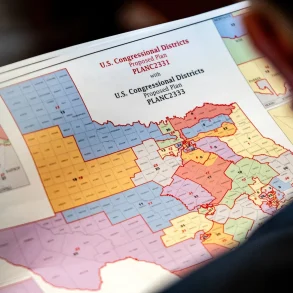In a bold move to slow down Republican momentum, Senate Democrats, led by Minority Leader Chuck Schumer (D-N.Y.), have announced they will force the full reading of the nearly 1,000-page Republican tax and spending package, dubbed the “One Big Beautiful Bill Act,” on the Senate floor. This procedural tactic, confirmed by Sen. Sheldon Whitehouse (D-R.I.) on June 28, 2025, could delay consideration of the Trump-endorsed legislation by at least 12 to 15 hours, pushing back the GOP’s timeline for a marathon amendment session known as a “vote-a-rama.”
A Strategic Delay
The decision to demand a full reading of the 940-page bill is a calculated act of defiance under Senate rules, which allow any senator to require clerks to read the entire legislative text aloud unless unanimously waived. Senate aides estimate the process could take around 15 hours, based on a similar tactic used by Sen. Ron Johnson (R-Wis.) in 2021, when he forced the reading of the 628-page American Rescue Act, which took nearly 11 hours. Democrats aim to use this time to highlight controversial provisions in the bill, such as permanent tax breaks for high earners, reductions in healthcare and food assistance, and benefits for fossil fuel industries.
“Schumer believes Americans deserve to hear exactly what’s in this monstrosity,” a Democratic source said, emphasizing the party’s intent to draw public attention to the bill’s potential impacts on working families.
Republican Push and Precarious Votes
The delay comes as Senate Republicans, led by Majority Leader John Thune (R-S.D.), scramble to secure enough votes to advance the bill. With the Senate split 50–50, the GOP faces a tight procedural vote that may require Vice President JD Vance to cast a tie-breaking vote. Several Republican senators have voiced concerns, making the outcome uncertain.
Senators Susan Collins (R-Maine) and Josh Hawley (R-Mo.) recently announced their support for moving the bill to debate, citing last-minute changes that addressed some of their concerns. Collins, while still skeptical, agreed to advance the bill out of respect for Thune but plans for amendments to alter its provisions. Hawley secured a delay in changes to Medicaid provider taxes, ensuring more federal funding for Missouri. Sen. Tim Sheehy (R-Mont.) also committed to supporting the procedural vote after assurances that a controversial provision for selling federal lands would be removed.
However, Sens. Rand Paul (R-Ky.), Thom Tillis (R-N.C.), and Ron Johnson (R-Wis.) remain opposed. Paul objects to the bill’s $5 trillion debt limit increase, Johnson argues it doesn’t do enough to reduce the deficit, and Tillis has broader concerns about the bill’s scope. With only three votes to spare, Republican leaders are in a precarious position as they work to meet President Trump’s July 4 deadline for passage.
What’s in the Bill?
Described by President Trump as “one of the most important pieces of legislation in the history of our country,” the bill aims to “secure our borders, turbocharge our economy, and bring back the American dream.” Spanning nearly 1,000 pages, it includes:
Tax Changes: Making parts of Trump’s 2017 tax cuts permanent, exempting up to $25,000 in tip income for workers earning under $150,000, and raising the state and local tax deduction cap from $10,000 to $40,000 through 2029.
Energy and Auto Industry: Rolling back clean energy incentives, ending electric vehicle tax credits after September 2025, and introducing tax breaks for interest on loans for U.S.-built vehicles while eliminating fines for automakers failing to meet fuel economy standards.
Healthcare and Other Provisions: Providing $25 billion for rural hospitals, gradually reducing the cap on Medicaid provider taxes, and removing a $200 tax stamp for purchasing firearm silencers and short-barrel rifles.
Budget analysts estimate the bill could add $3.5 trillion to $4.5 trillion to federal borrowing over the next decade, raising concerns among deficit-conscious senators.
The Road Ahead
The forced reading could push the vote-a-rama, a grueling series of amendment votes, into late Saturday night or early Sunday morning, testing the endurance of senators and staff. Republicans, anticipating this move, are weighing whether to power through the reading or allow a brief pause before diving into debate. Meanwhile, Democrats hope the delay will give them time to rally public opposition and push for changes to the bill’s more contentious provisions.
As the Senate braces for a contentious battle, the outcome of this legislative showdown remains uncertain, with both sides digging in for a high-stakes fight over the future of Trump’s economic and tax agenda.








